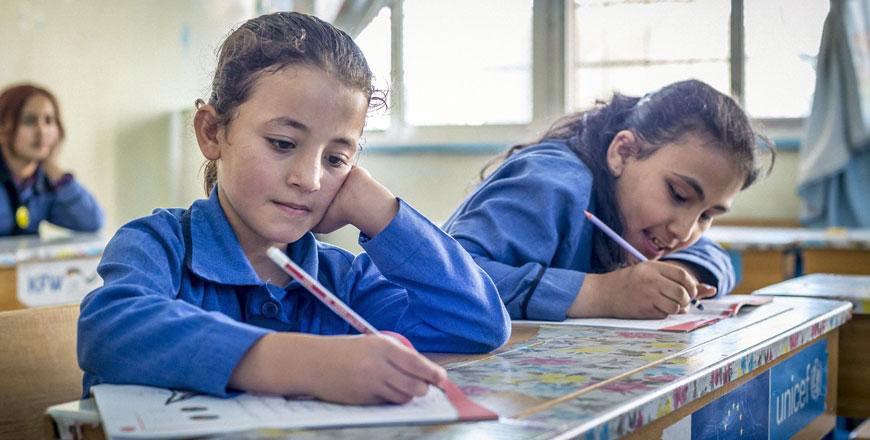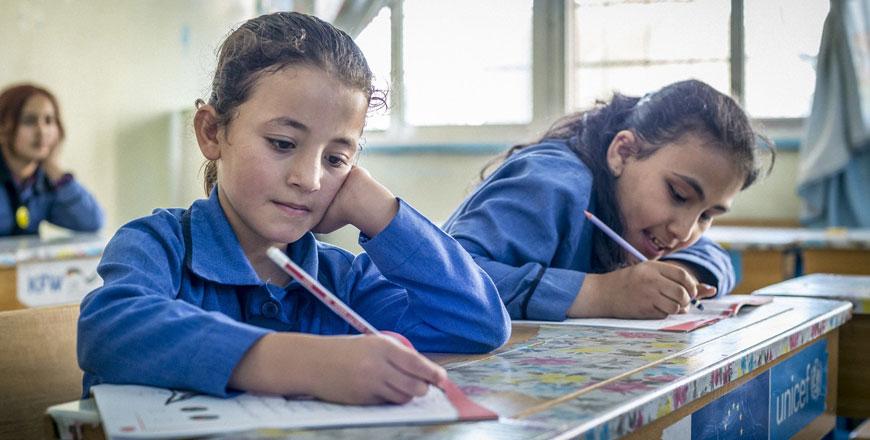You are here
‘Hajati’ programme effective at keeping vulnerable children in school — UNICEF
By JT - Jun 28,2019 - Last updated at Jun 28,2019

UNICEF released a statement recently, detailing a study on its ‘Hajati’ programme, which indicated the project supports 10,000 vulnerable children in Jordan (Photo courtesy of UNICEF)
AMMAN — UNICEF has said that its cash assistance programme “Hajati” has proven to be effective at keeping the most vulnerable children in Jordan in school.
According to a recent UNICEF statement, Hajati supported 10,000 children during the 2018-19 academic year.
Hajati, (my needs in Arabic), is an unconditional cash transfer for vulnerable families in Jordan whose children are registered in double shift schools.
The programme is accessible to all children, irrespective of nationality or status, with each eligible child receiving JD20 a month during the school term, the statement read.
The findings of a new study UNICEF conducted on the programme revealed that Hajati is effective at supporting children’s education and their overall social economic wellbeing, offering a protective measure against harmful coping mechanisms like child labour and early marriage.
“When comparing children receiving Hajati with a sample of the 45,000 children who stopped receiving the assistance in 2018 due to funding constraints faced by UNICEF, the study found that 78 per cent of children receiving Hajati are attending school regularly. However, more than one in four children who no longer receive Hajati, are now missing school,” the statement read.
The risk of a child engaging in child labour rises 26 per cent compared to those receiving Hajati, UNICEF said.
“Education is a powerful tool to break the cycle of poverty for children, families and communities,” Acting UNICEF Jordan Representative Ettie Higgins said in the statement. “UNICEF is committed to supporting the government to provide quality, inclusive education and basic social services for all children, especially the most vulnerable.”
In addition to the Hajati cash assistance, which largely benefits refugee children, UNICEF said it is supporting the expansion of the National Aid Fund to help vulnerable Jordanian children and their families.
The UNICEF Hajati programme is supported by the governments of Italy and the Netherlands, the Swedish International Development Cooperation Agency, the US Bureau of Population, Refugees and Migration and Australian Aid, according to the statement.
UNICEF added that it is appealing for an additional $25 million to support formal and informal education and Hajati cash assistance for children in 2019.
Related Articles
AMMAN — The government of Italy on Wednesday announced a 1.5-million-euro grant to UNICEF to support implementing “Hajati”, an integrated so
AMMAN — In 2013, Abu Mohammad fled Daraa, Syria, to find a new life in Amman.
AMMAN — Over 4,000 out-of-school Syrian and Jordanian children returned to the formal education system over the past scholastic year through
















